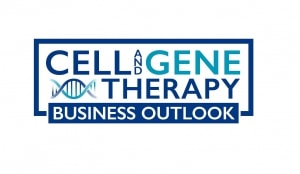
There have been a number of recent developments in cell and gene therapy, as detailed in our bimonthly newsletter, Cell and Gene Therapy Business Outlook.
- Integral Molecular, based in Philadelphia, PA and Optimeos Life Sciences, based in Princeton, NJ, have announced a partnership to develop antibody-based molecular targeting delivery systems for mRNA and DNA therapeutics to direct vaccines and gene therapies to relevant tissues in a patient’s body. Integral Molecular specializes in antibody discovery and has experience with mRNA immunization, while Optimeos has developed a novel nanoparticle drug delivery platform. The two companies plan to encapsulate these therapeutic nucleic acids within nanoparticle spheres that incorporate antibodies onto their outer surface which can target the nanoparticles to specific tissues.
- Passage Bio, a clinical-stage genetics company based in Philadelphia, PA, has announced that the U.S. FDA has cleared its Investigational New Drug (IND) application for PBML04, an adeno-associated virus (AAV)-based gene therapy for the treatment of metachromatic leukodystrophy (MLD). MLD is rare genetic disorder caused by mutations in the ARSA gene encoding the enzyme arylsulfatase A (ARSA), resulting in a lysosomal storage disease characterized by the accumulation of fats called sulfatides. These molecules eventually destroy the myelin sheath surrounding nerve fibers in both the central and peripheral nervous systems. PBML04 uses an AAVhu68 capsid to deliver a functional copy of the ARSA gene to correct ARSA enzyme deficiency, potentially in both the central and peripheral nervous system
- Serotiny, a South San Francisco, CA-based biotech company specializing in high-throughput engineering of therapeutic multi-domain proteins (tMDPs) has announced a collaboration with Horsham, PA-based Janssen Biotech, (a subsidiary of Johnson & Johnson) to optimize chimeric antigen receptor (CAR) designs for cellular therap The partnership will combine Serotiny’s tMDP engineering capabilities with Janssen’s experience in antibody development and cell therapy.
- Legend Biotech Corporation, based in Somerset, NJ, has announced that the U.S. FDA has cleared its investigational new drug (IND) application to evaluate LB1908, its autologous chimeric antigen receptor T-cell (CAR-T) therapy targeting Claudin 18.2 for the treatment of relapsed or refractory gastric, esophageal (including gastroesophageal junction), or pancreatic cancers. (Claudin 18.2 is a tight junction protein commonly expressed in those cancers.) LB1908 will be evaluated in a Phase I clinical trial in the United States to characterize its safety and tolerability, determine the recommended dose for Phase II, and evaluate preliminary efficacy.
- Evonik, based in Essen, Germany has announced plans to build a new global-scale production facility for pharmaceutical lipids at its Tippecanoe site in Lafayette, Indiana, which it acquired from Eli Lilly in 2010. Investment in the new plant will total $220 million, with the S. Government providing up to $150 million through its Biomedical Advanced Research and Development Authority (BARDA), which promotes the development of medical countermeasures to health security threats. The Indiana Economic Development Corporation (IEDC), Greater Lafayette Commerce (GLC), and Duke Energy will provide additional support. Evonik provided lipids to Pfizer/BioNTech to manufacture lipid nanoparticles (LNPs) for its mRNA-based COVID-19 vaccine, and the company plans to position itself for future growth in other mRNA-based therapies. Construction is planned to begin is early 2023, and is expected to be completed in 2025.
- National Resilience, a biomanufacturing company based in San Diego, CA, and The University of Texas MD Anderson Cancer Center have announced the launch of the Cell Therapy Manufacturing Center, a joint venture to accelerate the development and manufacturing of cancer cell therapies. The partners say the project combines MD Anderson’s immunotherapy and cell therapy expertise and clinical trials infrastructure with Resilience’s biomanufacturing technologies and advanced analytics. The new center will be based in a 60,000-square-foot manufacturing facility in the Texas Medical Center, and a team of 70 employees will provide process and analytical development as well as early-phase and clinical-stage Good Manufacturing Practices (GMP) services.
- GenScript ProBio, a biopharmaceutical contract development and manufacturing organization (CDMO) based in Piscataway, NJ, has announced that it has expanded its relationship with Athenex, a biopharmaceutical company based in Buffalo, NY. Athenex is focused on developing small molecule, biologic, and cell therapies for the treatment of cancer, including multiple Natural Killer T (NKT) cell-based therapies for which GenScript ProBio supports by providing critical high-quality materials and services.
- OmniaBio, a subsidiary of Toronto-based CCRM, has announced an agreement with Korean stem cell company Medipost, where Medipost will acquire an interest in OmniaBio from CCRM for $30 million in cash, and make an additional $60 million investment into OmniaBio. The transaction is expected to close on July 1, 2022. OmniaBio will be Canada’s first commercial-scale contract development and manufacturing organization (CDMO) for the manufacture of cell and gene therapies, and is expected to be Canada’s largest such facility, providing pivotal/Phase III and commercial-scale manufacturing of gene-modified cells and viral vectors. The first phase of construction is expected to be completed in 2024 and will consist of an approximately 85,000 square-foot (7,897 m2) facility with 15 clean rooms located at McMaster Innovation Park in Hamilton, Ontario. Two more phases are expected to be completed between 2024 and 2026.
- Philadelphia, PA-based in vivo gene editing company iECURE and cell and gene therapy contract development and manufacturing organization (CDMO) Center for Breakthrough Medicines (CBM), based in King of Prussia, PA, have announced a strategic collaboration in which CBM will supply Good Manufacturing Practices (GMP)-grade adeno-associated virus (AAV) for use in iECURE’s gene editing clinical programs. The company is developing gene knock-in therapies for the treatment of ornithine transcarbamylase (OTC) deficiency, citrullinemia type I, and phenylketonuria (PKU), as well as a PCSK9 gene knockout therapy (in partnership with Precision BioSciences) for the treatment of familial hypercholesterolemia (FH).
- CureVac, an mRNA-focused biopharmaceutical company based in Tübingen, Germany, and myNEO, an immunotherapy company based in Ghent, Belgium, have announced a research and option agreement to identify specific tumor surface antigens for the development of novel mRNA immunotherapies. Strongly immunogenic antigen targets will be identified and validated using myNEO’s biological datasets along with its machine learning and bioinformatics platform, and these targets will be used to develop therapeutic cancer vaccines using CureVac’s proprietary mRNA technology.
- ASC Therapeutics, based in Milpitas, CA, has announced that it has joined the Bespoke Gene Therapy Consortium (BGTC). Launched in October 2021 as part of the Accelerating Medicines Partnership (AMP) program managed through the Foundation for the National Institutes of Health (FNIH), the BGTC’s goal is to overcome the major obstacles to developing gene therapies for rare diseases in the areas of basic research, clinical research, manufacturing and production, and regulatory requirements. The public–private partnership includes the Food and Drug Administration (FDA), the National Institutes of Health (NIH), and multiple pharmaceutical companies, biotech companies, and non-profits.
- GeoVax Labs, a clinical-stage biotech company based in Atlanta, GA, has announced that the Chinese Patent Office has granted GeoVax’s patent application titled “Compositions and Methods for Generating an Immune Response to a Tumor Associated Antigen.” GeoVax specializes in developing immunotherapies and vaccines against infectious diseases and cancer, and the patent covers GeoVax’s GV-MVA-VLP viral vector platform, which uses Modified Vaccinia Ankara (MVA) to express tumor-associated antigens in virus-like particles (VLPs). GeoVax is developing MVA-VLP-MUC1, which expresses abnormal, aberrantly glycosylated forms of the cell surface-associated Mucin 1 (MUC1) protein, which is associated with a wide range of cancers, including breast, colon, ovarian, prostate, pancreatic, and lung. The company’s lead asset is Gedeptin, an adenoviral vector engineered to express a transgene encoding the coli enzyme purine nucleoside phosphorylase (PNP), administered by direct injection the tumor mass. PNP has no anti-tumor activity by itself, however when administered in combination with purine nucleoside prodrugs it can generate anti-tumor compounds which are localized within the tumor cells. Gedeptin is currently in Phase I/II clinical development for the treatment of head and neck squamous cell carcinoma (HNSCC). GeoVax is also developing prophylactic vaccines, with a vaccine against COVID-19 currently in Phase II clinical development, a pan-coronavirus vaccine in pre-clinical development, and vaccines against Ebola, Sudan, and Marburg hemorrhagic fever viruses, Zika virus, Lassa fever virus (LASV), and malaria in pre-clinical development.


